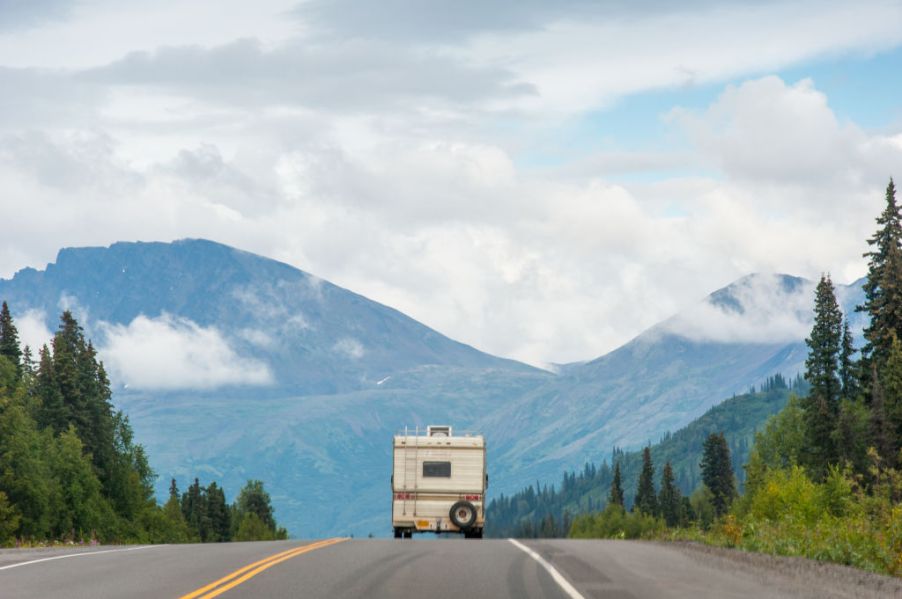
Do You Need a Special License to Drive an RV?
After some dedicated saving, you’ve finally bankrolled enough to search for the RV of your dreams. One of the biggest questions when RV-shopping is, “Do I need a special RV license?” The good news is that most states don’t require a special license to drive an RV. There are some exceptions, however, based on the weight and length of the vehicle.
Make sure to investigate the RV license laws in your state before you buy. Taking preliminary research a step further, you may want to consider renting an RV for a weekend before laying down your hard-earned cash.
The weight limit for RV licenses
The magic weight-limit number for your RV is under 26,000 pounds. Once you start looking in earnest, you’ll quickly realize that most RVs fit well within that range.
Class C RV
A Class C RV’s average weight ranges between 10,000 and 12,000 pounds.
Class A RV
For Class A, RVs weight between 13,000 and 30,000 pounds on average.
Converted Skoolie
Some folks decide to create their own unique vehicle by repurposing a retired school bus. Skoolies not only appeal to those looking for retro styling, but they may equate to significant savings over a traditional RV. A coverted skoolie’s weight and length depend on the make and model. However, once you determine the appropriate information, a Skoolie should fit within one of the above RV classes.
State-specific special RV license requirements for 2019
- California: Non-Commercial Class B license for a vehicle weighing over 26,000 pounds
- Maryland: Non-Commercial Class B license for a vehicle weighing over 26,000 pounds
- Michigan: Double R Endorsement is required when towing two vehicles, such as a fifth wheel and a trailer
- North Carolina: Class A license when the combined vehicle weight is over 26,000 pounds; Class B license for a single vehicle weighing more than 26,000 pounds
- New Mexico: Class A license when the combined vehicle weight is over 26,000 pounds; Class B license for a single vehicle weighing more than 26,000 pounds
- Nevada: Class A license when the combined vehicle weight is over 26,000 pounds; Class B license for a single vehicle weighing more than 26,000 pounds
- Pennsylvania: Class A Non-Commercial license for vehicles with a combined weight over 26,000 pounds. when towing trailers; Class B Non-Commercial license for a single vehicle over 26,000 pounds
- Texas: Class B Non-Commercial license for a vehicle over 26,000 pounds
- Washington, D.C.: Class A license when the combined vehicle weight is over 26,000 pounds; Class B license requirement applies to a single vehicle over 26,000 pounds
- Wyoming: Class A Non-Commercial license requirement for 26,000 pounds. or over that are towing an additional 10,000 pounds; Class B Non-Commercial license requirement applies to vehicles that are over 26,000 pounds. and towing a vehicle weighing less than 10,000 pounds
State-specific commercial license requirements for 2019
- Connecticut: Required when weight is over 26,000 pounds
- Hawaii: Required when weight is over 26,000 pounds
- Kansas: Class A Commercial license for weights over 26,000 pounds
- Michigan: Group A Commercial license for weights over 26,000 pounds
- New York: Class B Commercial license for weights over 26,000 pounds
- South Carolina: Class A Commercial license requirement applies when driving a combination of vehicles with a total weight more than 26,000 pounds; Class B Commercial license requirement applies to driving a single vehicle weighing more than 26,000 pounds
- Indiana: Required when vehicle weight is over 45,000 pounds
- Wisconsin: Required when vehicle length is more than 45 feet
If you’re a little overwhelmed with sticker shock, you may want to consider a lease or rent-to-own RV. Putting together all the facts will help you arrive at a well-researched decision that works for you.


